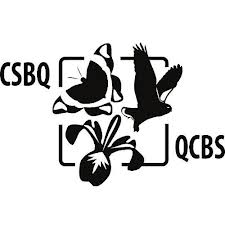Emily Studd

Project
Environmental and biological correlates of maternal investment in red squirrelsThis thesis examines how maternal investment, expressed as patterns of nest attendance and reproductive failure, in free-ranging red squirrels is influenced by environmental variation and life history traits. In the first chapter, nest attendance patterns were measured over one breeding season using temperature data loggers to assess the effects of the thermal environment, reproductive timing, and biological conditions. Time spent out of the nest was positively correlated with litter size and litter age, but also varied with date and ambient temperature. Early breeding females, experiencing colder temperatures and shorter days, spent less time out of their nest and most of that time coincided with the warmest part of the day, while late breeders spent more time out of their nest, but during the coldest part of the day. Thus, lactating red squirrels express nest attendance patterns consistent with cold and heat avoidance behaviour. In the second chapter, a 24- year dataset was analyzed to assess the effects of resources, climate, predators, and life history traits on the occurrence of litter loss and the probability of re- breeding. Litter loss increased when resources were scarce, ambient temperature was cold, predator abundance was high, and litter size was large. The probability of re-breeding was highest when litter loss occurred early in the season, resources were scarce, predator abundance was high, and the breeding season temperature was warm. Thus, reproductive failures occurred under conditions that increased costs or reduced benefits, and re-breeding only occurred when conditions allowed for profitable maternal investment. This thesis demonstrates that in response to environmental and biological conditions, maternal investment is adjusted according to the predicted thermoregulatory constraints of the female and her litter, and according to the costs and benefits of parental care, which together, influence the females’ behaviour and reproductive success.
Keywords
life history traits, environmental drivers, parental investment, reproductive failurePublications
1- Predators, energetics and fitness drive neonatal reproductive failure in red squirrelsStudd, Emily K., Stan Boutin, Andrew G. McAdam, Charles J. Krebs, Murray M. Humphries,
2014 Journal of Animal Ecology
2- Electrophysiological assessment of spectral sensitivity in adult Nile tilapia Oreochromis niloticus: evidence for violet sensitivity
Lisney, T. J., E. Studd, C. W. Hawryshyn
2010 Journal of Experimental Biology

